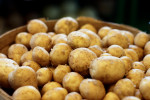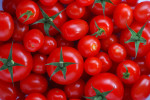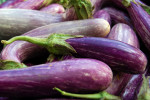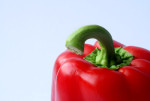
Gout
Deadly nightshade foods and arthritis: urgent need for research based on strong anecdotal evidence
potatoes – tomatoes – aubergines – peppers – goji berries
• People with arthritis used to be told to eat less foods from the deadly nightshade family as a way of reducing symptoms.
• In recent years this thinking has been widely dispelled as a myth.
• There is no scientific evidence that suggests that foods from the deadly nightshade family exacerbate arthritis symptoms. But equally, there is no research concluding that they don’t.
• Bearing in mind the wealth of anecdotal evidence from people with arthritis that eliminating all (or particular) nightshade foods from their diet has made a fundamental difference to their symptoms, it is somewhat surprising that no studies have been done in the area.
• It could be that some people have individual reactions to particular foods and do see an improvement in their symptoms if they eliminate them. Perhaps some of us have genes that make us more susceptible to the effects of solanine, or another component of deadly nightshade plants. Why wouldn’t experts put deadly nightshade plants to the test in light of all the anecdotal evidence in the area? Continue reading
Steroid research could bring new drugs with fewer side effects
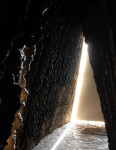 New anti-inflammatory drugs that avoid the harmful side effects of steroids could be developed after the discovery of a key mechanism that these treatments use to combat inflammation, says research in Nature Communications. Continue reading
New anti-inflammatory drugs that avoid the harmful side effects of steroids could be developed after the discovery of a key mechanism that these treatments use to combat inflammation, says research in Nature Communications. Continue reading
Brighton Marathon beckons. Iona Walton from Arthritis Digest magazine fundraises for leading arthritis charity
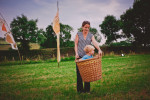 I’ve taken the plunge… and signed up to run the Brighton Marathon this April. And it’s all thanks to you, the community we’ve created via our website, facebook and twitter.
I’ve taken the plunge… and signed up to run the Brighton Marathon this April. And it’s all thanks to you, the community we’ve created via our website, facebook and twitter.
I’ve been editing Arthritis Digest magazine for over two years and now realise the devastating impact that arthritis and similar conditions can have on every aspect of life for some people. Continue reading
Gout attack risk twice as high overnight than in the daytime
 The risk of acute gout attacks is more than two times higher during the night or early morning hours than it is in the daytime, says research published in Arthritis & Rheumatology. And it doesn’t seem to be because of alcohol or meat consumption.
The risk of acute gout attacks is more than two times higher during the night or early morning hours than it is in the daytime, says research published in Arthritis & Rheumatology. And it doesn’t seem to be because of alcohol or meat consumption.
A total of 724 people with gout were followed for one year via the internet. They were asked to provide the date and hour that a gout attack occurred, and answered questions about their symptoms, medication, alcohol use and meat and seafood consumption during the 24 and 48 hours before the gout flare. Continue reading
Men self-manage arthritis better if masculine identity is not threatened
 Self-management support is better received by men with long-term health issues such as arthritis if it does not threaten aspects of masculine identity, says research in BMC Public Health.
Self-management support is better received by men with long-term health issues such as arthritis if it does not threaten aspects of masculine identity, says research in BMC Public Health.
A review of the current research evidence was carried out to see if certain types of support are more appealing and accessible to men with long-term health conditions such as arthritis. Continue reading
